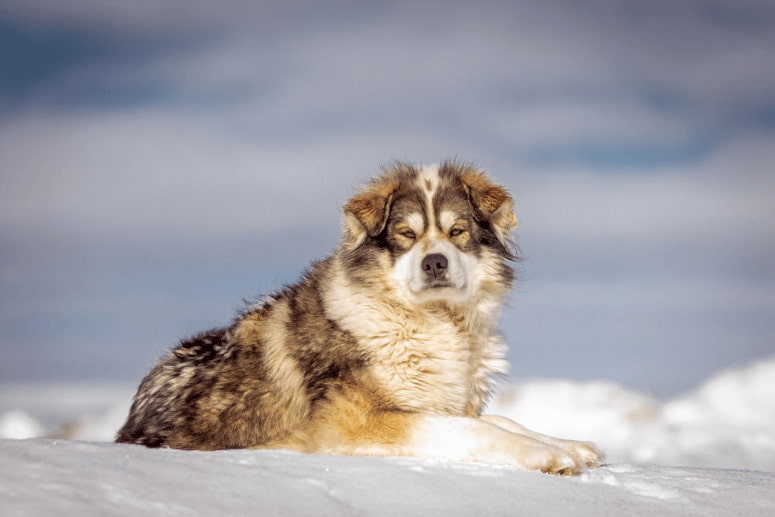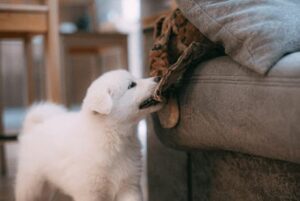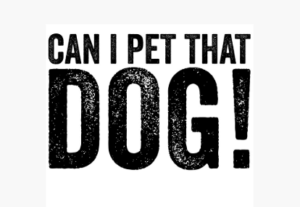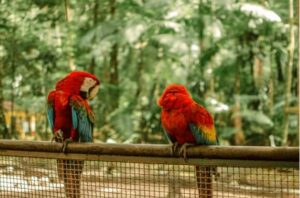If you’re an allergy sufferer who loves dogs, the idea of having a furry companion might seem daunting. Fortunately, hypoallergenic dog breeds are here to help! These breeds are known for producing fewer allergens, such as dander and hair, making them a suitable choice for people with sensitivities.
In this comprehensive guide, we’ll explore the best hypoallergenic dog breeds, their unique characteristics, and what makes them a great option for those with allergies. Whether you’re a first-time dog owner or looking to adopt another pet, this guide will provide the insights you need to make an informed decision.
What Are Best Hypoallergenic Dog Breeds?

Before diving into the list, it’s important to understand what “hypoallergenic” means. While no dog is entirely allergy-free, hypoallergenic dogs are less likely to cause allergic reactions because they shed less dander and hair compared to other breeds. The primary allergens found in dogs are proteins in their saliva, skin cells, and urine, which stick to their fur and are spread through the air.
Hypoallergenic breeds have unique coat types that trap dander more effectively and shed less. As a result, they are generally better suited for allergy sufferers, though it’s important to note that individual reactions can vary.
Top 10 Best Hypoallergenic Dog Breeds
1. Poodle
The Poodle is one of the most popular hypoallergenic dog breeds. Known for their curly, dense coats, Poodles shed very little, which makes them a great option for those with allergies. They come in three sizes: Standard, Miniature, and Toy, allowing potential owners to choose a size that fits their lifestyle.
Key Features:
- Curly coat that requires regular grooming
- Intelligent and easy to train
- Affectionate and energetic
2. Bichon Frise
Bichon Frises are small, friendly dogs with a soft, curly coat that doesn’t shed much. These dogs are not only hypoallergenic but also known for their cheerful personalities. Their coat requires regular grooming to prevent matting, but they make great companions for allergy sufferers.
Key Features:
- Small size (around 10 inches tall)
- Friendly, playful, and adaptable
- Low shedding and hypoallergenic
3. Shih Tzu
The Shih Tzu is another hypoallergenic dog breed with a long, flowing coat that produces very little dander. This breed is friendly, affectionate, and makes an excellent choice for people with allergies. Their coat requires maintenance to keep it healthy and free of tangles.
Key Features:
- Long, luxurious coat that requires regular grooming
- Great for apartment living
- Affectionate and calm temperament
4. Schnauzer
Schnauzers come in three sizes: Giant, Standard, and Miniature. All variations of this breed are hypoallergenic due to their wiry coats that don’t shed much. Schnauzers are intelligent, protective, and make excellent family dogs.
Key Features:
- Dense, wiry coat that requires regular trimming
- Good watchdogs
- Energetic and playful nature
5. Maltese
Maltese dogs are small, elegant, and hypoallergenic. They have long, silky coats that shed very little, making them a great choice for allergy sufferers. Although their coats require regular grooming, they are well-suited for apartment living and make great companions.
Key Features:
- Small size (around 7-9 inches tall)
- Very little shedding
- Friendly, affectionate, and lively personality
6. Yorkshire Terrier
Yorkies are small dogs with a fine, silky coat that sheds minimally. Their hypoallergenic nature makes them suitable for allergy sufferers. Yorkies are confident, independent, and require regular grooming to maintain their coat.
Key Features:
- Small size, weighing under 7 pounds
- Requires regular grooming
- Energetic and intelligent
7. Portuguese Water Dog
The Portuguese Water Dog, made famous by former U.S. President Obama’s dog Bo, has a curly, non-shedding coat that makes it hypoallergenic. These dogs are highly intelligent, active, and enjoy water activities, making them great for active families.
Key Features:
- Curly, dense coat
- Requires regular grooming
- Very active and loves swimming
8. Havanese
Havanese dogs are small, hypoallergenic companions with a silky coat that sheds very little. They are affectionate, social, and adapt well to different living environments, including apartments.
Key Features:
- Small, sturdy build
- Silky coat that sheds minimally
- Great with children and other pets
9. Soft-Coated Wheaten Terrier
The Soft-Coated Wheaten Terrier has a soft, silky coat that sheds very little. Known for their friendly and gentle temperament, they make excellent family dogs. Their hypoallergenic coat requires regular grooming and care.
Key Features:
- Medium-sized breed
- Friendly, affectionate, and energetic
- Requires regular grooming
10. Basenji
The Basenji is a unique hypoallergenic breed known for its distinctive “baroo” bark. They have a short, fine coat that sheds very little, making them suitable for allergy sufferers. Basenjis are independent, intelligent, and make great pets for experienced dog owners.
Key Features:
- Short coat that sheds minimally
- Independent and intelligent
- Quiet, non-barking nature
Why Choose Hypoallergenic Dogs?
There are several reasons why people with allergies may want to choose a hypoallergenic dog breed:
- Allergy Relief: Hypoallergenic dogs produce fewer allergens, making it easier for people with sensitivities to live comfortably with a pet.
- Low Shedding: Many hypoallergenic breeds shed very little, which means fewer allergens in the home.
- Suitable for Sensitive Individuals: These dogs are great for individuals who may be prone to allergies from pet dander or hair.
- Great Companions: Aside from their hypoallergenic qualities, many of these breeds are friendly, playful, and make excellent pets for families and individuals alike.
Unique & Cultural Aspects of best Hypoallergenic Dog Breeds
In many cultures, hypoallergenic dogs have been cherished for their special characteristics. For example, the Poodle has long been admired in France for its intelligence and elegant appearance. The Portuguese Water Dog is tied to the maritime history of Portugal, where they were used by fishermen to herd fish and retrieve nets. These dogs not only serve as companions but also hold cultural significance in their respective regions.
Step-by-Step Guide: How to Choose the Best Hypoallergenic Dog for You
Choosing the right hypoallergenic dog for your home is an important decision. Here’s a simple step-by-step guide to help you make an informed choice:
- Consider Your Living Situation: Do you live in an apartment or house? Some hypoallergenic dogs, like the Bichon Frise and Maltese, are great for apartments, while larger breeds like the Portuguese Water Dog may need more space.
- Assess Activity Levels: Are you looking for an active dog or a more relaxed companion? Active dogs like the Schnauzer and Basenji are great for energetic owners, while breeds like the Shih Tzu and Maltese are more laid-back.
- Grooming Requirements: All hypoallergenic dogs require grooming, but some may need more frequent care than others. Make sure you’re prepared for the grooming routine.
- Temperament and Personality: Consider what type of temperament fits your lifestyle. Some breeds are more independent (like the Basenji), while others are more affectionate and family-oriented (like the Havanese).
Frequently Asked Questions (FAQs)
1: Can hypoallergenic dogs completely eliminate allergies?
No, hypoallergenic dogs can reduce the chances of allergic reactions, but they cannot fully eliminate allergens.
2: How often do I need to groom my hypoallergenic dog?
Grooming frequency depends on the breed. Some breeds, like the Poodle, require frequent grooming, while others, like the Basenji, need minimal care.
3: Are hypoallergenic dogs easier to train?
Hypoallergenic dogs vary in intelligence and trainability. Some, like the Poodle, are highly trainable, while others may require more patience.
Conclusion & Call to Action
Choosing a hypoallergenic dog can make all the difference for allergy sufferers who still want the joy of a pet. By considering factors like size, temperament, grooming needs, and activity level, you can find the perfect hypoallergenic breed for your lifestyle. If you’re ready to adopt, take the next step and explore available breeds near you. Your new best friend might just be one of the hypoallergenic breeds mentioned above!
Don’t forget to share this article with friends and family who may benefit from learning more about hypoallergenic dog breeds!












